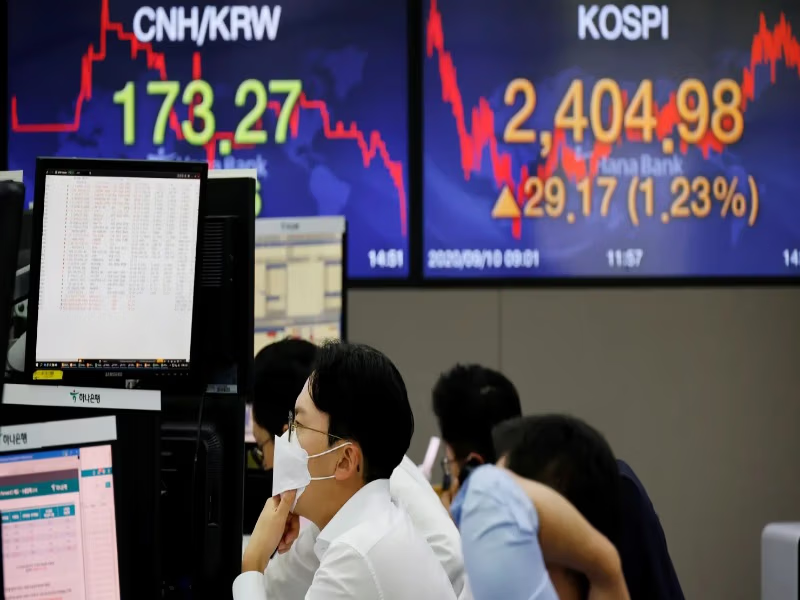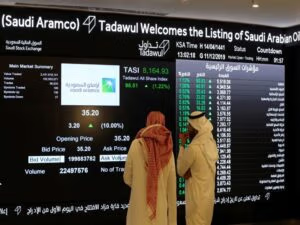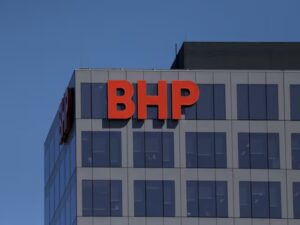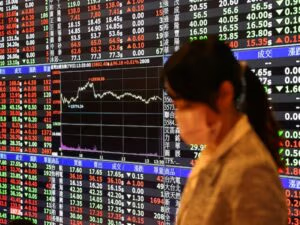The Kospi index of South Korea ended at the highest level ever on Thursday, as the International Monetary Fund increased its outlook on the 2025 growth of the country to 0.9 percent, compared with 0.8 percent before the October outlook report.
The IMF also increased its growth forecast of the world economy by claiming that the effects of the U.S. tariffs were “at the modest end of the range.”
It enumerated several reasons that led to upgrading of the forecast such as the nimbleness of the private sector, which had front-loaded imports in the first half of the year and rapidly restructured the supply chains to shift the trade flow; trade deals between the U.S. and other nations and the general restraint of much of the world, which basically left the global trading system intact.
The South Korean stocks also got a lift when U.S Treasury Secretary Scott Bessent informed CNBC in an exclusive interview in the U.S on Wednesday that Washington was “about to finish up” trade negotiations with the Asian country.
He said, “The devil’s in the details, but we are ironing out the details.”
The electronics and industrial equipment companies and the autos brought in the best gains on the Kospi index. Samsung Electronics shares rose 2.84 percent to an all-time high, and Hyundai Motor rose more than 8 percent, and Kia rose up to 7.23 percent.
The Kospi of South Korea gained 2.49 percent and closed at 3,748.37, small-cap Kosdaq closed at 865.41.
Local media stated that Stake in SK Inc., which is one of the largest technology conglomerates in South Korea, dropped more than 5 percent on Thursday, following a decision by the Supreme Court to overturn an earlier decision on a divorce settlement made by Chairman Chey Tae-won.
A lower court ordered Chey to pay approximately $1 billion to his estranged wife in a high-profile divorce lawsuit last year.
However, shares of the chipmaker, SK Hynix, closed 7.1 percent up.
The ASX/S&P 200 of Australia increased to a new record following the increase in the seasonally adjusted unemployment rate to almost the highest level in four years, as of September, with the country registering a rate of 4.5 percent.
It is compared to the 4.3 percent that Reuters-polled economic experts forecasted and the 4.2 percent rate in August; therefore, the index added 0.86 percent to close at 9,068.4.
The employment increased by 14,900 in September, and this was short of the expectation of up to 20,000 gains. The weak jobs reading opens the door to more interest rate cuts.
The Nikkei 225 index, the benchmark index in Japan, was up 1.27 percent to end at 48,277.74, and the Topix index was up 0.62 percent to 3,203.42.
The Hang Seng Index in Hong Kong was unchanged at 25,888.51, but the Hang Seng Tech Index was down by 1.18 percent in the market to 6,003.56. The CSI 300 of the Mainland gained 0.26 percent to reach 4,618.42.
Hong Kong-listed shares of Nio dropped at a rate of 9 percent when the sovereign wealth fund of Singapore sued the Chinese electric vehicle manufacturer over its supposed breach of securities regulations through fraudulent inflation of its revenues.
According to a court document filed in August in the Southern District of New York, a suit was filed against the CEO of Nio, Li Bin, and the former Financial Officer, Feng Wei.
The Nifty 50 index and the BSE Sensex of India were both up 0.85 percent as of 2 p.m. local time.
U.S. equity futures marginally rose following reports of major banks’ earnings beating, with the government shutdown in Washington set to take its third week, and increasing tensions between the two countries in trade.
The Dow Jones Industrial Average closed the day down just 17.15 points or 0.04 percent at 46,253.31. Notably, the 30-type index increased to 422.88 points.
The S&P 500 closed 0.4 percent above at 6,671.06, on top of a 1.2 percent intraday high. Nasdaq Composite closed 0.7 percent at 22670.08; thus, it briefly rallied as much as 1.4 percent.






